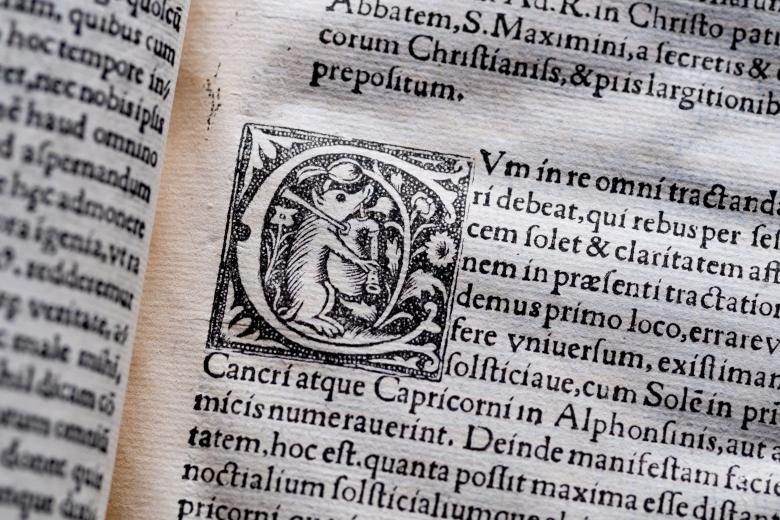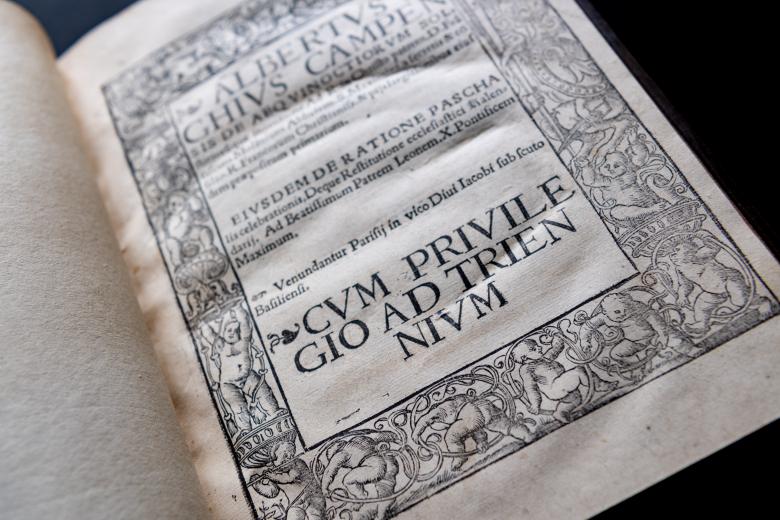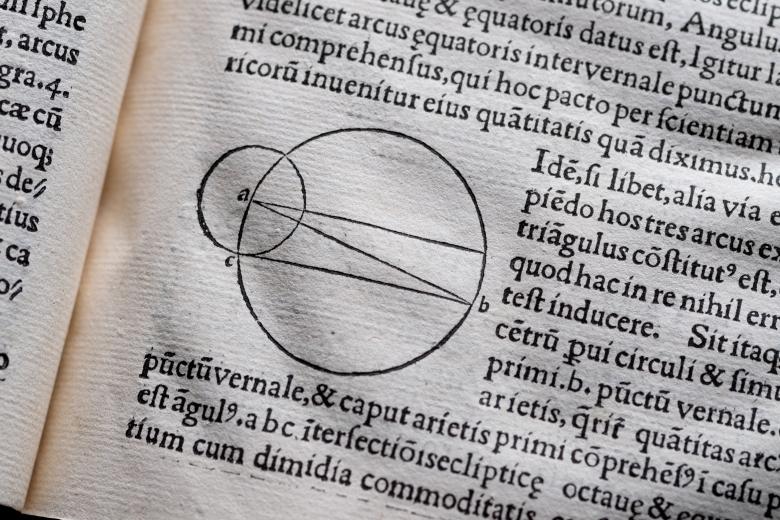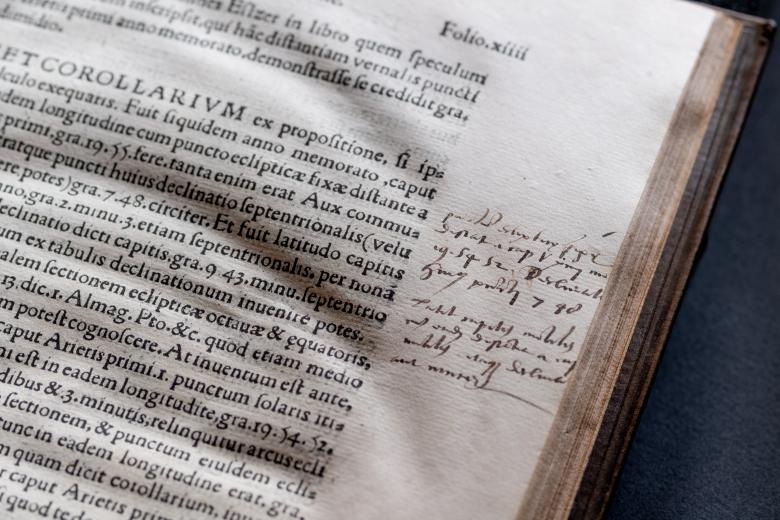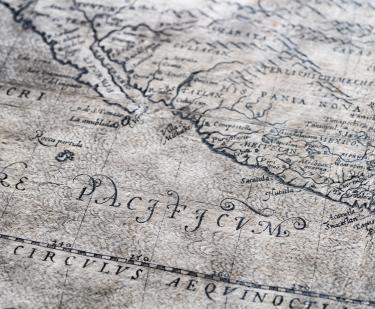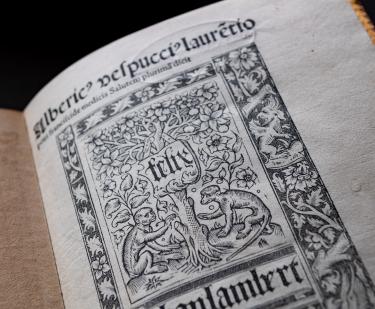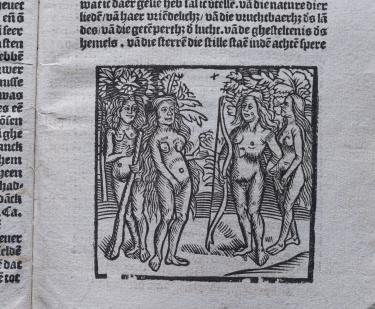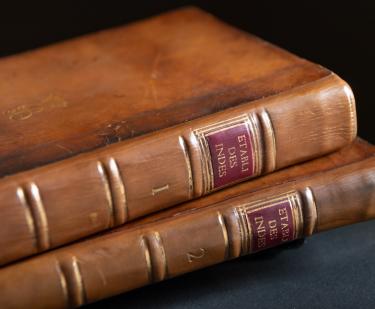De Aequinoctiorum Solsticiorumque Inventione
The Gregorian calendar was introduced in the Catholic world in 1582, and wanted to realign the calendar with the actual solar year by a deletion of 10 days. The Julian calendar day Thursday, 4 October 1582 was followed by the first day of the Gregorian calendar, Friday, 15 October 1582. The Dutch Roman Catholic theologian, mathematician, and astronomer Albert Pigghe (ca. 1490-1542) advocated for a reform of the calendar half a century earlier in his work On the creation of Equinoxes and Solstices. Aligning the solar year with the calendar was important for the calculation of Easter, the beginning of the liturgical year. Pigghe mentioned that the discovery of a Fourth Continent further complicated the calculation of an Easter date that was identical for all Christians on all continents. Pigghe’s work was also used in the controversy over the naming of the continent after Vespucci rather than after Columbus, since it still attributed the earliest arrival of the Europeans to Vespucci.
